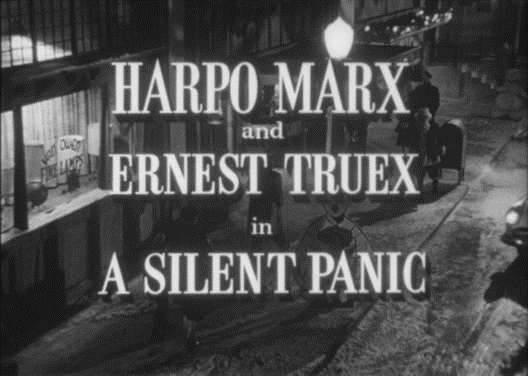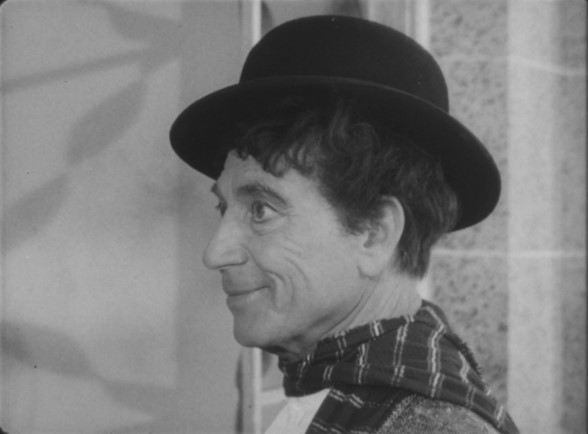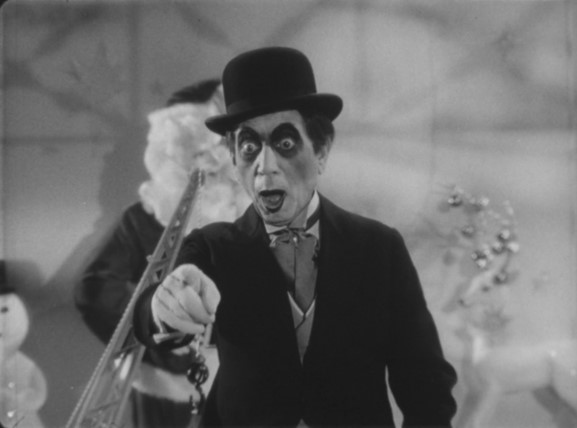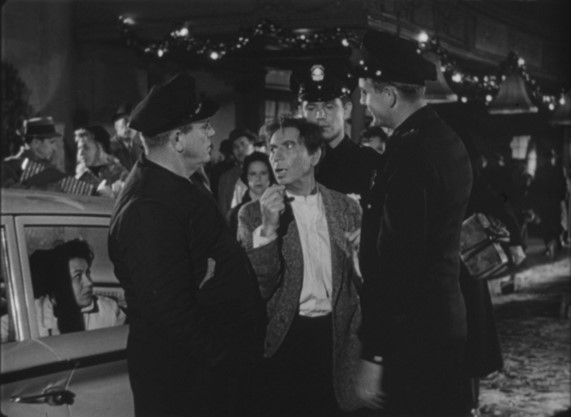
In Hagley's DuPont Company films and commercials collection (Acc. 1995.300) there are a number of episodes of the anthology program, The Du Pont Show with June Allyson (not to be confused with The Du Pont Show of the Month, or The Du Pont Show of the Week). The series aired on CBS from 1959 to 1961. Typically the episodes depicted adaptations of stories or real events, fictionalized to some degree and interspersed with ads for DuPont products like Nylon and Dacron. The audience's connection with these products went beyond the interstitial ads; during the host segments, June Allyson herself wears dresses or scarves that are announced to be incorporating some of the aforementioned DuPont products. Occasionally, Allyson would star in the episodes, alongside many recognizable faces like Joseph Cotton or Bette Davis, and some who were more well known in their day such as Robert Culp and Lee J. Cobb. One face who likely stood out to audiences of 1960, as well as for comedy fans today, is that of Harpo Marx.

 For the year's December 22nd show, Harpo—famous for playing a silent, impish comedic character alongside his brothers Groucho, Chico, and sometimes Zeppo—was given a dramatic role and a serious context in which to play pantomime. "A Silent Panic” (S2:E13) as the episode was titled, involves Harpo's speech and hearing impaired character, Benson, who mimes as an automaton in a department store window at Christmastime. He witnesses a murder, but, as he is unable to communicate easily, this makes things difficult for the authorities who question him. To make matters worse, he is also being hunted by the criminals.
For the year's December 22nd show, Harpo—famous for playing a silent, impish comedic character alongside his brothers Groucho, Chico, and sometimes Zeppo—was given a dramatic role and a serious context in which to play pantomime. "A Silent Panic” (S2:E13) as the episode was titled, involves Harpo's speech and hearing impaired character, Benson, who mimes as an automaton in a department store window at Christmastime. He witnesses a murder, but, as he is unable to communicate easily, this makes things difficult for the authorities who question him. To make matters worse, he is also being hunted by the criminals.
Whereas Harpo’s inability to speak in his Marx Brothers films was a carry-over from his Vaudeville shtick, here it is presented as an actual disability to add drama and depth to the story. Harpo utilizes his character's differences for pathos rather than comedy.
 In 1960, Harpo was 71 and he would die just four years later. Nevertheless, his distinctive facial expressions and ways of emoting through physical gestures are just as recognizable here as in his earlier romps with the other Marxes. This film is a well made and, at times, charming piece of television’s Golden Age which also features early directing work by journeyman Arthur Hiller (Love Story) and an original score by TV regular Joseph Mullendore (Honey West). Bill Marx, Harpo’s son, also makes a cameo appearance in a street scene (see right).
In 1960, Harpo was 71 and he would die just four years later. Nevertheless, his distinctive facial expressions and ways of emoting through physical gestures are just as recognizable here as in his earlier romps with the other Marxes. This film is a well made and, at times, charming piece of television’s Golden Age which also features early directing work by journeyman Arthur Hiller (Love Story) and an original score by TV regular Joseph Mullendore (Honey West). Bill Marx, Harpo’s son, also makes a cameo appearance in a street scene (see right).
"A Silent Panic" has, up until recently, only been seen in low quality video tape transfers, but now has been given a lovely new 2K scan from the 16mm print in our collection. To view this film, visit the Hagley Digital Archives.
Alex Lattanzi is the Collections Assistant at Hagley Museum and Library
